Resources
Customs
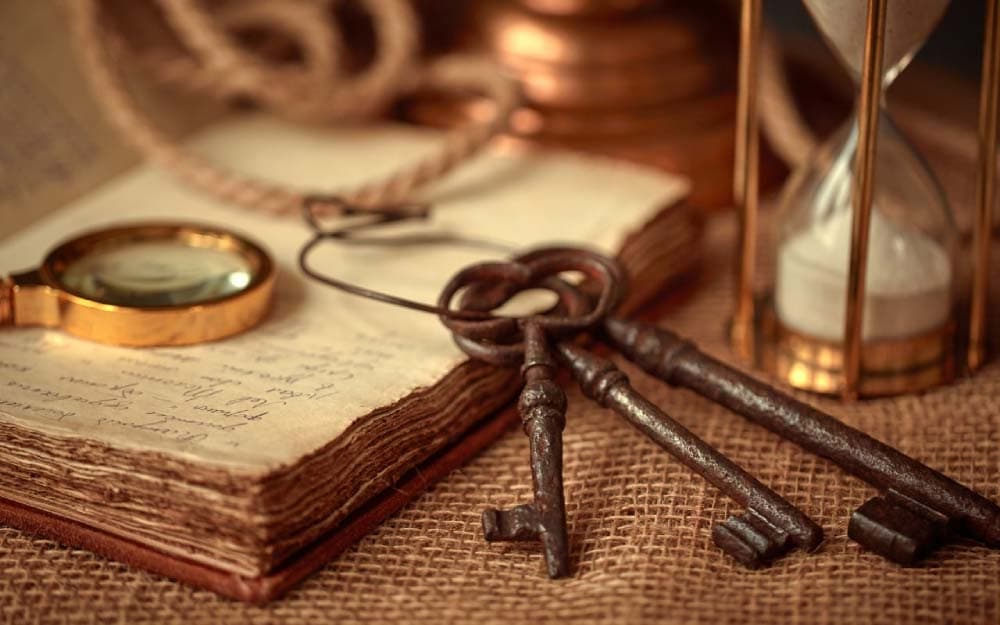
How to Create a Family Heirloom
- August 2, 2022
- Customs
Creating your own family heirloom is a very good idea and a thoughtful thing too. The best part is that there are a variety of common family heirloom options you can check out, all with their fair share of unique features. It’s a very good idea to find the right methods to create a family heirloom and also to ensure that it will be a great thing you can share with family members in the long run. That alone can make a huge difference.
Identify the piece you want as a family heirloom
Before you create a family heirloom, you should narrow down the options. The best part is that a good family heirloom doesn’t have to be complex. You just have to define things in an appropriate manner and ensure that you choose a piece that’s meaningful to the family. That’s how you get to create the ideal family heirloom, and that on its own can be very important.
Think about style and quality
Once you know the item for the family heirloom, then you should focus on style and quality. Is this piece featuring a timeless style? Or is it just popular at this time? Fashion products and accessories can be great family heirlooms, but at the same time they will have styles and all kinds of ideas that are hard to access and enjoy. With that being said, you should avoid trends and instead go with something that transcends time. Timeless products and styles deliver the right results. That is what you should consider, not family heirlooms that are trendy now, but will go out of style fast.
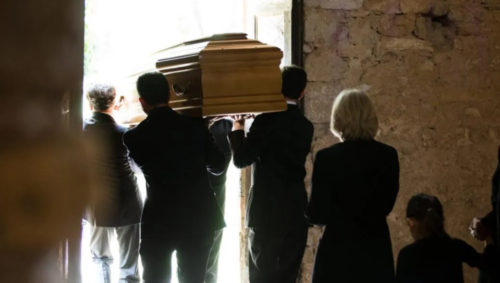
A Guide to Funeral Processions
- March 28, 2022
- Customs
Funeral processions are very important and a crucial part of the funeral service. They are designed to bring comfort to the friends and family of a person that just passed away. Knowing the funeral procession etiquette and understanding religious funeral customs is very important and it can make a huge difference. You have to ensure that you understand how these things work and how you can follow the right guidelines and be certain that everything is done to the letter.
Understanding what a funeral procession is
The funeral procession is the family and friends of a person that passed away following their coffin as they are taken to their resting place. It’s also known as a funeral cortege. This procession starts at the funeral home, or at the home of the person, and it follows the coffin to the burial place. Sometimes the funeral procession goes to the funeral service location or the committal, it depends on the situation at hand.
What you will notice is that most of the time you will have a funeral director. He is the one that leads the cortege on foot for a small distance, at least before it gets into the hearse. With that in mind, once they reach the crematorium, cemetery, or the place of worship, they will lead the cortege on foot again, which is extremely important.
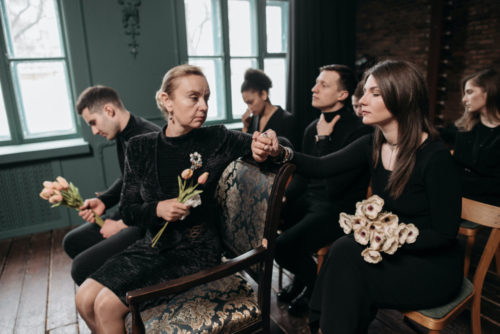
Guide to Attending a Funeral During a Family Feud
- March 28, 2022
- Customs
Family conflicts happen, and they can end up diminishing the relationships that people have with one another. However, when you are in the middle of a family conflict and one of the family members dies, that ends up becoming a huge challenge. It’s certainly not something easy to do, and you have to ensure you adapt and implement everything properly. That doesn’t mean it will be easy to do, but in the end what matters is keeping your family together and dealing with any family feuds the best way that you can.
In fact, it’s a good idea to ensure that you and the ones you have a feud with put it aside and focus on making the funeral a celebration of life, rather than a place to air your grievances. On top of that, you want to ensure that you study religious funeral customs and see exactly what you need to follow and stick to those guidelines. You may even find a lot of customs that you never knew existed, which is quite common in a situation like this. Adapting and implementing accordingly is always going to be a bit of a challenge, but that’s what makes things work in the end.
Compromise is key
Having a way to compromise is crucial here since it shows that nothing is more important than the funeral. A good idea is to try and squash any of the beef on the phone or a video call before you meet at the funeral. Doing that is crucial, because no one wants to see people fighting during a funeral. It’s not appropriate and it’s also a sign of disrespect for the person that passed away.
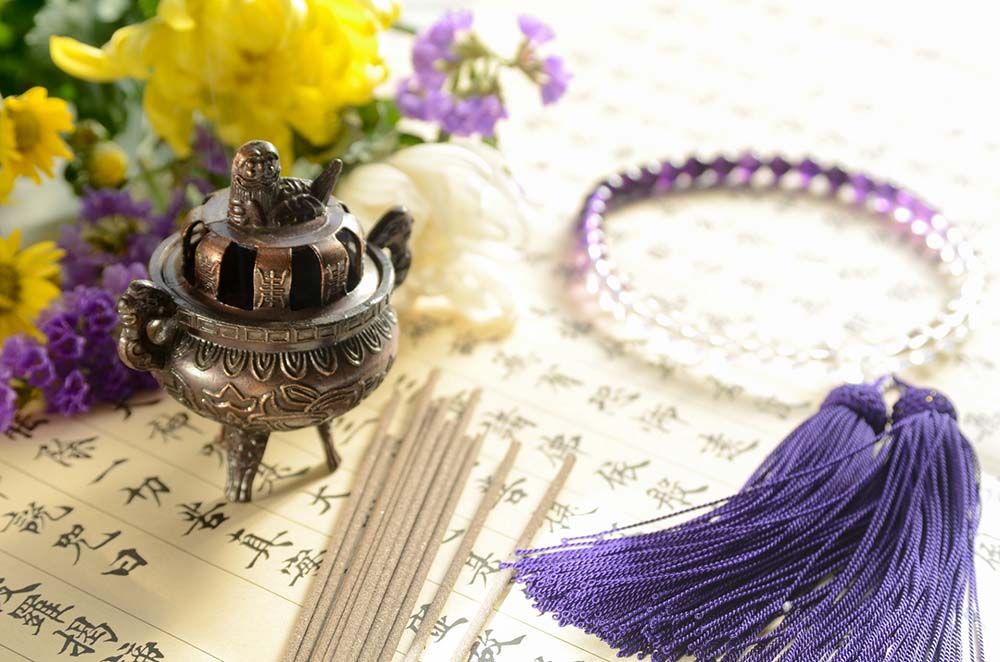
A Guide to Buddhist Funeral Customs and Traditions
- December 16, 2021
- Customs
Buddhist funerals are unique in many aspects. They vary not only from family to family and different schools of Buddhism, but also according to their country of origin. Samsara, the cycle of life, is the core of the Buddhist faith. This belief emphasizes that the rituals performed at a funeral help the deceased progress onto the next stage of their journey into the afterlife. Buddhist funerals range from more traditional to a combination of traditional and modern practices.
Read on to explore the basics of a Buddhist funeral service, including its customs, traditions and etiquette to learn how to properly pay your respects.
What is a Buddhist Funeral?
Buddhis funerals are centered around a focus of peace and serenity. While rituals can vary from family to family, usually the family of the deceased plans the funeral service and an altar for the ceremony. Buddhist funeral ceremonies are simple in their nature. Usually, a monk would oversee the services and guide the family through the prayers and meditation aligned with the traditional activities. The Buddhist funeral service usually ends with the cremation of the loved one. There are no strict, formal guidelines for Buddhist funerals so some families tend to blend Christian and Buddhist rituals.
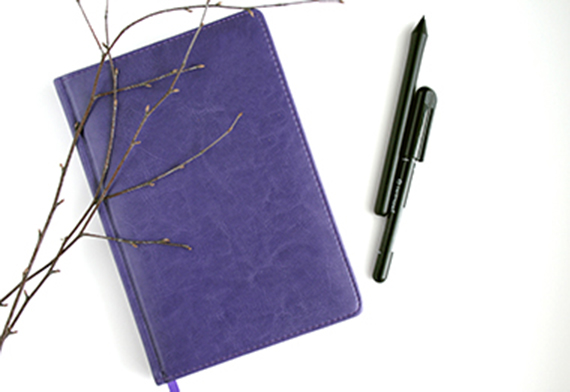
How to Write an Obituary
- November 15, 2021
- Customs
Losing a loved one is one of the most emotionally challenging things we can face in our lives. Writing an obituary can help us memorialize the life and legacy of a special person we lost, as well as create a meaningful, lasting tribute to them in their honor.
As you are grieving and mourning your loss, finding the right words to include in an obituary in a loved one’s memory, as well as communicating the devastating news of their passing isn’t easy. However, creating an obituary is vital in acknowledging and communicating of the loss, and in notifying others important details in regards to their funeral ceremony and services. By writing an obituary, we also get the opportunity to commemorate and tell the world about that special person we’ll always hold dear to us. Beyond all the beautiful and meaningful things conveyed in a well-written and eloquent obituary, an obituary also allows you to pay homage to the life your loved one lived, accomplishments, special relationships and experiences as well as all of the important things he or she should be remembered for.
Although this is not an easy task, we hope to provide you with some guidance and a point of reference to help you achieve an obituary worthy of every reader’s respect and admiration. Read on to learn everything you need to know to create an obituary for your loved one that does justice to the special and beloved person they were.
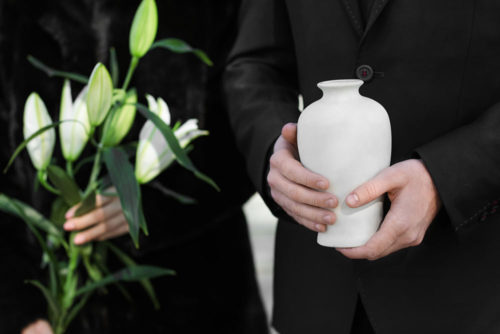
Is it Acceptable to Divide Cremation Ashes?
- November 5, 2021
- Customs
Cremation is becoming an increasingly popular method for paying tribute to a loved one who has passed. In addition to its eco-friendly, smaller global footprint, a decline in religious traditions, and its lower cost than burial services, the simple fact that it allows family members to equally divide the decedent’s ashes amongst them also accounts for its growing popularity. In the past, families would decide who amongst them would receive the ashes of their loved one. Thankfully, those days are gone, and families can now divide the remains into individual keepsake urns, and then equally divide those between family members.
If your loved one has passed, you may be wondering if it is even acceptable to divide their ashes amongst family members. Regardless of what the law and religions have to say about it, if it was your loved one’s wish to be cremated and then have their remains shared between family members, that is what should be done to pay homage to your loved one’s legacy. We will explore the topic in more depth here, reviewing the various legal, religious, and personal implications of dividing cremated ashes.
What do Religions Have to Say About Dividing Cremated Ashes?
Depending on differing theological perspectives, the standpoint of religion varies in its views on dividing cremated ashes. According to Muslim and Jewish religious traditions, the act of cremation itself is looked down upon as it is seen as an action that dishonors the human body. Buddhism, Hinduism and other Eastern religions, on the other hand support and even strongly encourage cremation, but do not offer any specific guidelines as to how cremated remains should be handled. The Christian church is silent, on the matter altogether.

Can You Still Hold Traditional Funeral Services if You Choose to Do Cremation?
- November 5, 2021
- Customs
Cremation is becoming a popular choice for families as a way of memorializing their loved ones. It is a common misconception however, that if you choose to do a cremation for your loved one, that you cannot hold a visitation, wake or other traditional funeral services. You need not be concerned about this. In truth, it is not only accepted to hold a visitation or funeral service before a cremation; it is completely appropriate to do so. The important thing is to honor your loved one in a way that will be sentimental and meaningful for you and your family that also abides by your loved one’s personal wishes. One of the benefits to choosing cremation is that families can enjoy more freedom in choosing which kind of ceremony they would like to hold to pay tribute to their loved one. So, the key takeaway here is that most likely, your needs and wishes can be accommodated to honor your loved one before or after cremation.
Are Traditional Memorial Services Held Before or After the Cremation Process?
While a traditional memorial service can be held prior to or after the cremation process, it is more common for it to take place before, This also enables you to have the opportunity to hold an open casket as well. Usually, in a wake, family members visit their loved one prior to the funeral service, with the casket present and the body of their loved one embalmed inside. With visitations on the other hand, it is not necessary for the casket or the body of the deceased to be present. Visitations usually occur one day before or the same day as the memorial services.
How is the Casket Handled in Cremation?
If your loved one is cremated prior to visitation, a “rental” casket would be used for the visitation or wake ceremony. The exterior of the casket would be of a hardwood shell, and would look as such to any one viewing it, but the interior would contain the cremation container holding your loved one’s remains. The hardwood shell casket would be re-used while the interior will be cremated with the deceased, making it a more environmentally conscious as well as economical option than if you were to use a cremation casket.
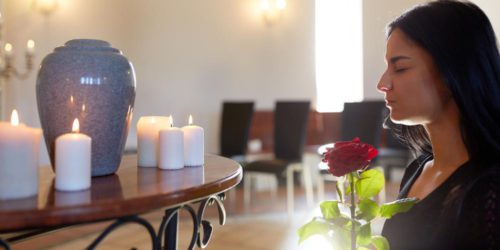
What religions allow for a cremation?
- November 5, 2021
- Customs
How Do Different Religions View Cremation?
Religion can ground the trajectory of our lives, providing a spiritual and moral framework to guide how we conduct ourselves, the values we adhere to and define how we fit into our community and society. But what role does religion play at the end of our lives, specifically in regard to choosing cremation as a method of memorization? And what does religion have to say about we should care for the ashes we will eventually all become as our bodies are returned to the earth?
As cremation grows in popularity as a method of paying tribute to your loved one, many wonder about the viewpoints and perspectives various religions have towards it. Here, we will explore how various major religions view cremation and where it fits into each religion’s individual ethos.
Which religions most widely accept cremation?
Buddhism
Buddhism is founded upon a belief that at the end of a person’s life journey, he or she will go through a process called samsara or reincarnation. Cremation is accepted in Buddhism as a memorialization ritual that helps release the body from its physical form to aid in its spiritual transformation, while caring for the person’s mental and physical state and honoring their life. The leader of the Buddhist religion, Gautama Buddha was himself cremated and many people who observe Buddhist religious practices today follow suit, also choosing cremation as a prefered method of memorialization.
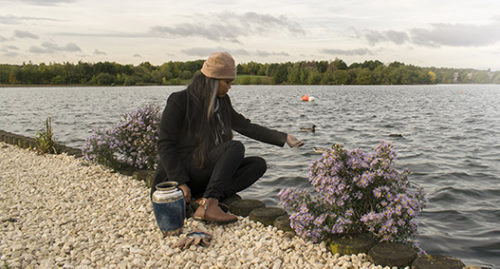
Why Cremation is Growing in Popularity
- November 5, 2021
- Customs
When a loved one dies, the kind of memorial service you choose to have for them is incredibly important in honorably commemorating their life and legacy. In recent years, cremation has become a popular choice of memorial service amongst families in the U.S. In fact according to a 2017 report by the Cremation Association of North America, for the first time ever more Americans are choosing cremation ver traditional methods of burial to pay tribute to their deceased loved ones.
What accounts for this growing popularity of cremation? Cremation offers a plethora of benefits that make it the smarter choice for many families on various economic, social, demographic and religious levels. We will explore those factors here so you can decide whether cremation will be the best method of memorialization for your loved one.
1. More Economical In Cost
Cremation is considerably less costly than that of a traditional burial. This is due to the fact that it is a simpler method of commemoration that requires far less steps and processes than that of traditional burial which requires a casket, embalming, burial plot, etc. All of those individual processes greatly add up in cost. Many families enjoy the simplicity of cremation, and the ease of being able to conduct such a service without having to worry about affording and coordinating all of the other processes required for burial, during an already challenging time.

Is it Necessary to Embalm A Body Before Cremation?
- November 4, 2021
- Customs
If you recently lost a loved one, and you’re considering cremation for them, you may be wondering if it’s required or necessary to do an embalming prior to their cremation. As you navigate an emotionally complicated time, the last thing you need is to be bogged down understanding the requirements of different memorial services. So, we will break it down here, discussing what the practice of embalming entails and the role it plays in regards to cremation.
What is Embalming and Why is it Performed?
Embalming refers to a method of preserving the body of a deceased person using a process of disinfection and treating the body with a preservative solution in order to slow down the decomposition process.
Delayed Memorial Service
Maybe, you have family members coming in from out of state to attend the funeral and therefore, there will be a couple of days in between your loved one’s passing and services. In such situations in which there will be a prolonged period of time in between a person’s death and their cremation, it is advisable to have the body embalmed first to preserve the body and slow down its decomposition.
